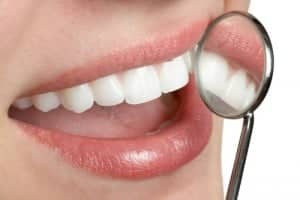Removal of Wisdom Teeth
 What happens during the removal of wisdom teeth? Let’s take a look.
What happens during the removal of wisdom teeth? Let’s take a look.
An oral surgeon or your dentist can remove (extract) a wisdom tooth/teeth. The procedure often can be done in the dentist’s or surgeon’s office. You may have the surgery in the hospital, especially if you are having all your wisdom teeth pulled at one time or if you are at high risk for complications.
If you have any infections, surgery will usually be delayed until the infection has cleared up. Your doctor or dentist may have you take antibiotics to help heal the infection.
Before removing a wisdom tooth, your dentist will give you a local anesthetic to numb the area where the tooth will be removed. A general anesthetic may be used, especially if several or all of your wisdom teeth will be removed at the same time. A general anesthetic prevents pain in the whole body and will cause you to sleep through the procedure. Your dentist will probably recommend that you don’t eat or drink after midnight on the night before surgery so that you are prepared for the anesthetic.
To remove the wisdom tooth, your dentist will open up the gum tissue over the tooth and take out any bone that is covering the tooth. He or she will separate the tissue connecting the tooth to the bone and then remove the tooth. Sometimes the dentist will cut the tooth into smaller pieces to make it easier to remove.
During wisdom tooth extraction, your dentist or oral surgeon:
- Makes an incision in the gum tissue to expose the tooth and bone
- Removes bone that blocks access to the tooth root
- Divides the tooth into sections if it’s easier to remove in pieces
- Removes the tooth
- Cleans the site of the removed tooth of any debris from the tooth or bone
- Stitches the wound closed to promote healing, though this isn’t always necessary
- Places gauze over the extraction site to control bleeding and to help a blood clot form
After the procedure:
If you receive sedation anesthesia or general anesthesia, you’re taken to a recovery room after the procedure. If you have local anesthesia, your brief recovery time is likely in the dental chair.
As you heal from your surgery, follow your dentist’s instructions on:
- Bleeding. Some oozing of blood may occur the first day after wisdom tooth removal. Try to avoid excessive spitting so that you don’t dislodge the blood clot from the socket. Replace gauze over the extraction site as directed by your dentist or oral surgeon.
- Pain management. You may be able to manage pain with an over-the-counter pain reliever, such as acetaminophen (Tylenol, others), or a prescription pain medication from your dentist or oral surgeon. Prescription pain medication may be especially helpful if bone has been removed during the procedure. Holding a cold pack against your jaw also may relieve pain.
- Swelling and bruising. Use an ice pack as directed by your dentist or surgeon. Any swelling of your cheeks usually improves in two or three days. Bruising may take several more days to resolve.
- Activity. After your surgery, plan to rest for the remainder of the day. Resume normal activities the next day, but for at least a week, avoid strenuous activity that might result in losing the blood clot from the socket.
- Beverages. Drink lots of water after the surgery. Don’t drink alcoholic, caffeinated, carbonated or hot beverages in the first 24 hours. Don’t drink with a straw for at least a week because the sucking action can dislodge the blood clot from the socket.
- Food. Eat only soft foods, such as yogurt or applesauce, for the first 24 hours. Start eating semisoft foods when you can tolerate them. Avoid hard, chewy, hot or spicy foods that might get stuck in the socket or irritate the wound.
- Cleaning your mouth. Don’t brush your teeth, rinse your mouth, spit or use mouthwash during the first 24 hours after surgery. Typically you’ll be told to resume brushing your teeth after the first 24 hours. Be particularly gentle near the surgical wound when brushing and gently rinse your mouth with warm salt water every two hours and after meals for a week.
- Tobacco use. If you smoke, don’t do so for at least 72 hours after surgery — and wait longer than that if possible. If you chew tobacco, don’t use it for at least a week. Using tobacco products after oral surgery can delay healing and increase the risk of complications.
- Stitches. You may have stitches that dissolve within a few weeks or no stitches at all. If your stitches need to be removed, schedule an appointment to have them taken out.
Wisdom tooth removal usually is effective in preventing:
- Crowding of the back teeth.
- A wisdom tooth becoming stuck in the jaw (impacted) and never breaking through the gums.
- Red, swollen, and painful gums caused by a flap of skin around a wisdom tooth that has only partially come in.
- Gum disease and tooth decay in the wisdom tooth, which may be harder to clean than other teeth, or in the teeth and jaw in the area of the wisdom tooth(Source: WebMD.com).
There is really nothing to fear with having your wisdom teeth removed. It may seem overwhelming but it’s all quite simple. Summer is also the perfect time for your teens to have their wisdom teeth removed if it’s been recommended by your dentist.
Call Graham E. Farless DDS today for more information, 336-282-2868. Visit his practice online at www.gsodentist.com.